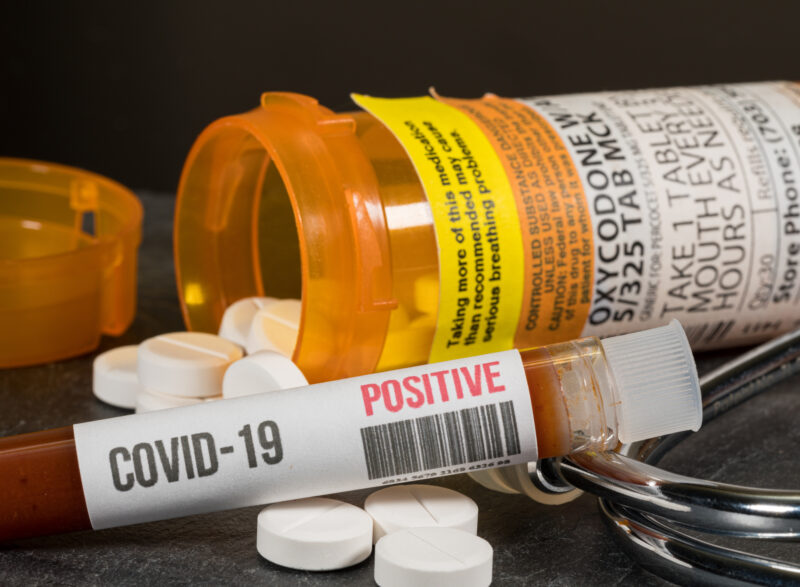While the staff at Kuether Brain & Spine isn’t directly fighting on the frontlines of the COVID-19 pandemic or the opioid epidemic, we’ve seen and understand the severe impacts of both as medical professionals.
The COVID-19 pandemic has fully interrupted our lives in every capacity including the exacerbating the ongoing opioid epidemic in America.
As COVID-19 has brought America to a screeching halt, more than 35 states have reported increases in opioid-related mortality as well as increased concerns for those with a mental illness or substance use disorder in counties and other areas within the state.
In tandem, both the COVID-19 pandemic and the ongoing opioid epidemic are raging throughout our nation.
For some perspective, COVID-19 has taken the lives of more than 159,000+ Americans while more than 702,000 Americans have died from a drug overdose between 1999-2017. On average, 130 Americans die every day from drug overdose.
These numbers are not only staggering but eerily similar in their massive scale. It is nearly impossible to find someone who hasn’t been directly or secondarily affected both these two colliding crises.
Another challenge of the ongoing pandemic and the opioid epidemic is preventing the more than 20 million people with substance use disorders from making fatal mistakes.
People are increasingly overdosing alone, with no one around to call 911 or administer the opioid-overdose antidote naloxone, which creates higher fatality rates.
The ongoing pandemic has also forced us all to stay home and social distance – removing us from our usual routines and coping mechanisms.
This can be a dangerous situation for those struggling with addiction as it can quickly evolve into social isolation or stress/anxiety-inducing environments, which may trigger relapses.
Other emotions like grief, chronic stress and ongoing sense of uncertainty as well as sudden changes in circumstances like job loss, new work environments and more can place more people at risk of developing a substance use disorder.
Another inflammatory element of these colliding crises is pandemic-induced changes to drug supply chains, making them even more unreliable and dangerous.
With rapid changes in the supply chain, those who are seeking drugs may have less visibility into what they are ingesting or understanding their potency.
It is no coincidence that these crises are rising with each other. Unfortunately, drug overdose deaths have increased more than 11% in the first four months of 2020 compared to last year, according to government data.
The first step to helping the ongoing opioid crisis is
1) education and awareness of how prevalent the issue is across our country
2) supporting those around who are suffering substance use disorders and 3) checking in on those who are emotionally or mentally suffering right now.
These are challenging and uncertain times; however, we can rise as a community to fight them both in little and big ways.










